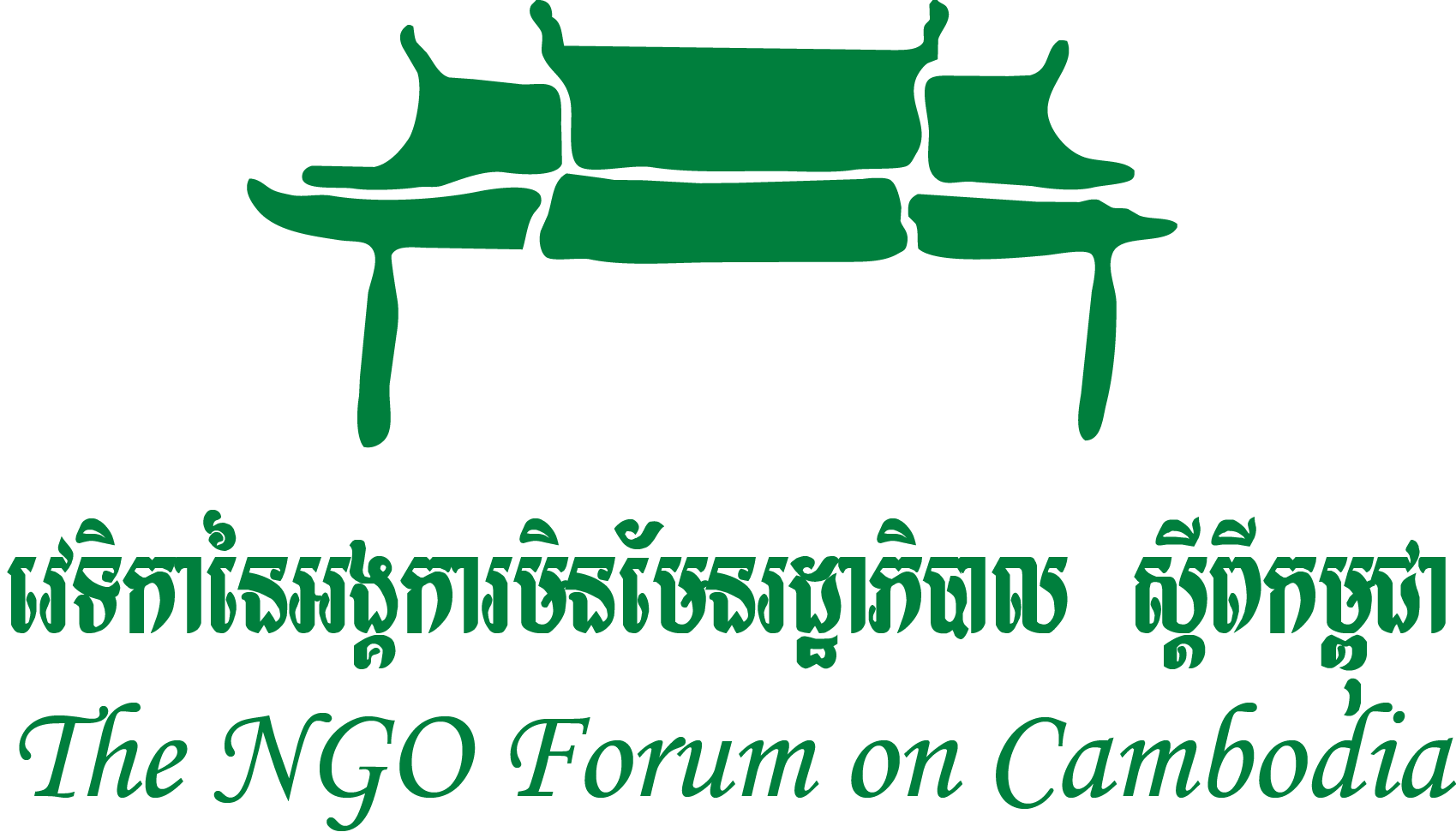The NGO Forum on Cambodia, released Cambodia’s Citizens Climate Budget for 2017 on March 4, 2020 which supported by UNDP/ Climate Finance Network (CFN). There were 70 participants (24 women) who representative of relevant ministries, National Assembly, Development Partners, Embassies, Academia, CSOs and Community. This launching workshop aimed to: 1. disseminate and inform key stakeholders including government ministries, DPs, NGOs, private sector, and vulnerable community on current spending of public budget for climate change response in Cambodia; 2. provide an opportunity for participants to share their action plan and dialogue to address climate change issues in Cambodia particularly to meet local people needs for climate change adaptation and mitigation.
This report presents user-friendly information on the national budget for climate change in key related ministries based on official data from Cambodia’s budget laws, the Climate Public Expenditure Review 2017, as well as other government sources and reports.
The report notes that nearly 1 million households in the kingdom suffered from extreme weather from 2000-2017, including, floods that affected 743,301 households, storms that damaged some 180,000 households and drought that had an impact on 420,008 hectares of land.
The impact climate change is expected to have on Cambodia’s gross domestic product (GDP) is only expected to grow, knocking 0.4% off GDP by 2020 and causing GDP to be a 9.8% lower than planned by 2050, If greater efforts aren’t taken to respond to climate change now. Cambodia’s plans to become an upper-middle income country by 2030 could be jeopardized.
Dr. Tek Vannara, Executive Director of NGO Forum on Cambodia, said that this is the first such report for Cambodia: "This report helped to gather inputs from all stakeholders, based on information provided by Government on the climate change response. This report will give insight for the government and parliament to develop a country resilient to climate change, and further address some key areas such as health, income, social security, people's livelihoods" he said.
In 2017, the national budget and development partners allocated over $225 million to address climate change concerns. 30% of Government expenditure was either fully or partially addressing climate change, while 70% of the total national budget spending generated no climate change benefits. The Government has been increasing its spending on climate change at a fast pace, but this trend needs to be accelerated to reduce reliance on development partners’ funds, which may be less predictable.
Mr. Julien Chevillard, Senior Technical Advisor, UNDP, mentioned that the launch of this first CCB is just the beginning of a process. This information can then be used in civil society dialogue with national assembly, ministry of economy and finance and line ministries, to inform the budget process and maximize impact on the ground.
Mr. Krishna Sapkota, from Freedom Forum Nepal, shared the initial lessons learned from a similar CCB initiative in Nepal, including the important role of this document in raising awareness and generating debate on climate change spending.
Participants highlighted that women are considered especially vulnerable to loss of income, post-disaster shocks, heavy workloads and health problems after environmental disasters. The government could publish additional information on how it is addressing women’s vulnerability to climate change in the national budget. This information is critical as women and girls are at much greater risk of harm from climate change impacts. The need to channel more funds to the sub-national level was also highlighted by several participants.
H.E. Kuth Chandara, member of the 3rd commission of the National Assembly, praised the good work done on generating dialogue between all stakeholders and reiterated the commitment of National Assembly to be fully involved in the debates that inform the budget process.
NGO Forum on Cambodia made recommendations for the Cambodian government to increase expenditure in areas that generate exclusive climate change benefits, provide transparency on budget allocation and spending, present a publicly accessible, regular Citizens Climate Budget and to have ministries start dialogues with NGOs on strengthening the budget towards addressing climate change.





